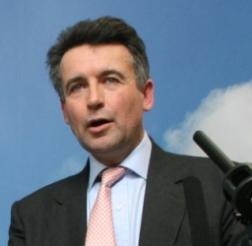A charity chief executive whose pay is capped at £32,000 yesterday told a committee of MPs that his charity was unique and that they should not insist that all charities follow suit.
Magnus MacFarlane-Barrow, CEO of Mary’s Meals, was giving evidence to the Public Administration Select Committee investigation into sector pay, along with Martyn Lewis, chair of NCVO and Caron Bradshaw, CEO of CFG.
The inquiry was sparked by media coverage of charity executive salaries in various national newspapers in the summer, notably The Daily Telegraph.
MacFarlane-Barrow said some of the reporting was “mischief-making” and “left me uncomfortable because it suggested that we had a view on some charities paying higher salaries than ourselves, and that is not true”.
MacFarlane-Barrow’s CEO salary is currently capped at £32,000, though the highest salary within his organisation is £43,380.
Asked by Robert Halfon MP why Mary’s Meals decided to impose its pay cap, MacFarlane-Barrow said: “We work with the poorest of the poor, people that don’t even have enough to eat. Many of our volunteers are paid nothing and live in poverty themselves. We feel we are privileged to take part in this work.”
Pressed on whether the charity’s low salaries inhibited its recruitment of talent, he said his staff were of very high calibre but he did not doubt that the charity sometimes lost people to higher salaries elsewhere.
MacFarlane-Barrow was keen not to leave the Committee with the impression that all charities should follow Mary’s Meals’ lead. “There are more important things people should be asking about than salaries,” he said, “like the impact that organisations are having.
“This issue can become a distraction.”
Pressed by Halfon whether he thought it was wrong that some charities pay very high salaries, he declined to say – even when Halfon accused him of “a cop-out”.
“No it is genuinely not a cop-out,” he said. “I have very strong views about Mary’s Meals, but every charity is different. Our situation is quite unusual.”
St Andrew’s defends CEO’s salary
Meanwhile, the chair of St Andrew’s Healthcare used his evidence to defend his chief executive’s recent £653,000 pay package. Charles Wake told the MPs that St Andrew’s is a “trading charity that we manage in a businesslike manner”, providing high-quality care to the most troubled mental health patients referred to it by the NHS. It emplys 4,000 staff who between them endure 400 assaults each month and it has recently invested over £250m in new hospitals.
Wake said that the charity’s CEO, Dr Philip Sugarman, was a highly-qualified physician who could, if he chose, earn more money in the NHS or the private sector. He said there were “very few forensic consultant psychiatrists who also had extensive management experience” and so the charity had to pay market rates for its leadership.
PASC chair Bernard Jenkin (pictured) said a lot of people would ask how a trading organisation that pays high salaries could possibly be for the public benefit. And Kelvin Hopkins MP described the salary as “eye-watering” and “almost in bankers’ territory”.
“How do we inject the true spirit of charity back into charities?” queried Hopkins, “because some of them have lost that.”
No Charity Commission intervention, please
None of the witnesses appearing before the Committee felt that the Charity Commission should have any control over charity salary levels, despite some suggestions from the MPs to that effect. Martyn Lewis said: “I don’t think that would be a good thing in a democratic society.”
NCVO and the Charity Commission have set up their own inquiry into executive pay, which proposes to devise a set of principles to guide trustees in setting pay levels. Lewis told the Committee that the inquiry had been contacted by just over 350 people with a wide variety of views, and said the MPs could judge for themselves whether that number indicated a great deal of public concern about the issue.
Improving transparency
Tory MP Priti Patel queried whether the witnesses had any ideas for practical measures that could be taken to improve transparency around pay. Lewis said one thing being considered was publishing the precise salaries of high earners, though he warned that that could have the effect of driving pay levels higher as headhunters sought to poach employees.
Caron Bradshaw suggested that charities could be required to publish details of how they set their remuneration policies in the same way as they are currently required to set out their reserves policies.
Patel also suggested that members and volunteers could be appointed to charity boards, to which Bradshaw replied that was also common practice.
Carolyn Gray, a trustee at Christian Aid, said the charity received around 280 responses after it went public with its defence to the Telegraph story in the summer. And only about ten were positive – but she told the Committee that the coverage started a useful debate.








